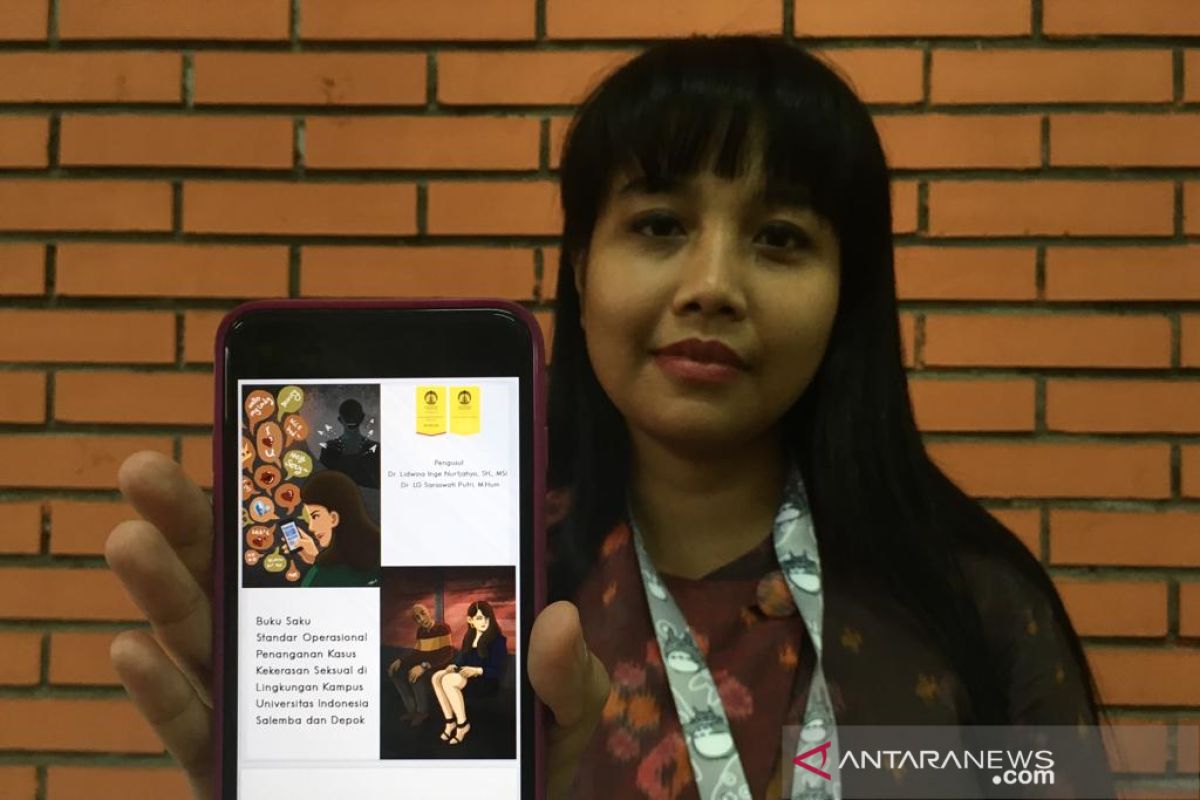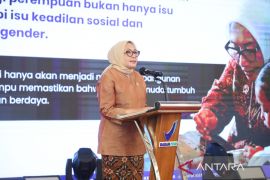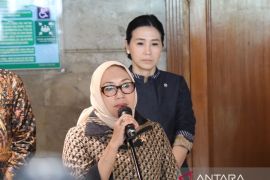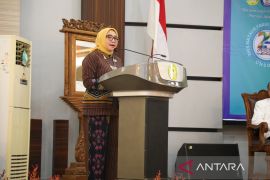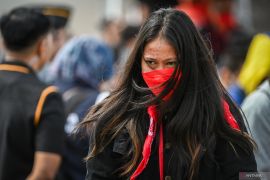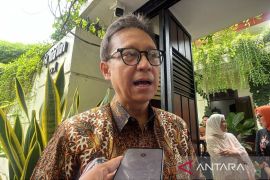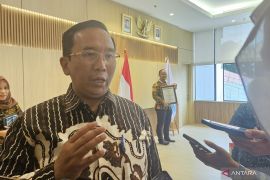It was not common to talk about the definition of sexual violence as people still considered it taboo and they were really into victim-blamingJakarta (ANTARA) - It becomes a reasonable question to ask, but where can women be safe since both private and community spaces are considered harsh and have no protection against any kind of violence. Sexual violence occurring in academic communities is one of many specific cases which is finally being recognized and talked about.
American pop singer Lady Gaga, for instance, specifically wrote about it in her very touching 2015 song "Til It Happens To You" that captured some cases of college-going women being sexually assaulted.
"Til it happens to you, you don't know how it feels. Til it happens to you, you won't know, it won't be real," Lady Gaga expressed her angst through these powerful lyrics.
In the same year, this song was released, a philosophy lecturer of Universitas Indonesia (UI) Dr LG Saraswati Putri (Saras) along with her colleagues were conducting victim assistance of a UI student RW, in a case of sexual exploitation.
The case came into the limelight in 2013, when RW was found to be pregnant after she was raped by a poet, Sitok Srengenge. They knew each other through an event held on campus.
"It was not common to talk about the definition of sexual violence as people still considered it taboo and they were really into victim-blaming," Saras noted.
She highlighted the issue of power relations which referred to 'power relations' or cases of sexual violence in college campuses involving juniors, including students, with some members of the senior fraternity or people in authority.
“And we know how important it is to recognize power relations in the academic space. Abusive acts of that power becoming a case of exploitation through influence, like for instance, deceiving someone for sexual gratification,” Saras said.
The case of sexual violence in UI, did not stop at what RW experienced, but there were many others within campus regulations who escaped conviction, Saras believed.
UI does have some regulations that define decency but these are neither enough nor suitable for tackling sexual violence. "The problem is it is never about morality, but beyond that, it is the absence of consent and abuse of power," Saras emphasized.
To this specific condition, Saras cooperated with Dr Lidwina Inge Nurtjahyo from the Faculty of Law to propose a basic written regulation of the Compact Book of Operational Standard to Handle Sexual Violence Cases in Universitas Indonesia, both in Depok Campus, West Java, and Salemba Campus, Jakarta.
This book comprises several points, among which is the scope of sexual violence, referring to the academic script of the National Commission on the Elimination of Violence against Women.
It specifically underscored the issue of sexual harassment in the form of verbal sexual abuse, harassment through phone calls, stalking, and unwanted physical contact.
As the book of standard operational remains a referral to legal rules that has the force of law, Saras is expecting UI leaders to follow up by processing a letter which concerns steps on eliminating sexual violence on campus.
"It would be a long journey to reach that but, at least, now we have the thoughts written down in the script," she said
A law-based regulation is needed to place academic institutions as the support system for victims of sexual violence in the college campus environment, even more, when the positive law still does not have a wide definition of sexual violence.
In President University located in Bekasi, West Java, the neighboring city of Jakarta, there was a situation similar to the one that occurred in UI.
"Teachers, as well as students, have no such understanding even about the basics of sexual harassment, particularly verbal abuse. They think the inappropriate talk is just joking and something normal," said Natasya Kusumawardani, a lecturer at the university who is concerned about women rights.
However, President University had been eyeing an anti-sexual harassment policy with some slogans, but still do not have any regulations covering this issue, or mechanism to implement the policy.
Kusumawardani wants to begin with a change of mindset on the definition of sexual violence, internalizing the knowledge to people within the President University environment, and she feels lucky when they look likely to accept and also encourage her effort.
“We need such training or workshops to spread the message of ‘what is sexual violence’ to students and teachers. Also, a personal approach matters significantly,” she pointed out.
To complete the regulation and mindset, as explained above, a senior researcher and lecturer of State Islamic University (UIN) Syarif Hidayatullah, Jakarta, Siti Musdah Mulia, stressed the importance of action.
“I will be the one who goes crazy when it comes to any sexual violence cases on campus which are forgotten. I have exposed cases on this issue, and some told me to stop for the sake of the name of our institution. But it was not supposed to end like that because we need to show solidarity in protecting each other,” Mulia said.
Furthermore, she delivered a very strong point when she said, “A silent majority is a disaster for humanity, and any tolerance shown to violence is a disaster as well.”
The message is clear that we have to take further steps to eliminate sexual violence on college campuses. Act, like we do not have to wait ‘til it happens to you, or us. (INE)
Related news: Strong commitment paramount to combating workplace sexual harassment
Related news: Anti-sexual violence bill crucial weapon in fight against rape culture
Related news: Hundreds march to prompt lawmakers to pass anti-rape bill
Editor: Fardah Assegaf
Copyright © ANTARA 2019
